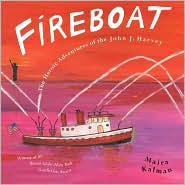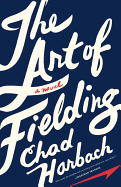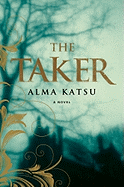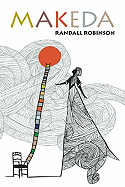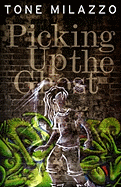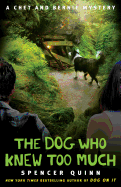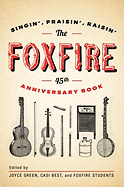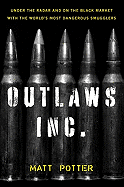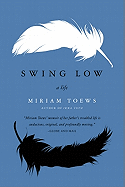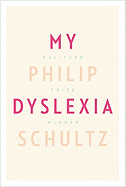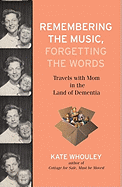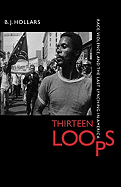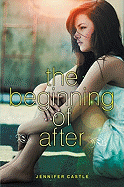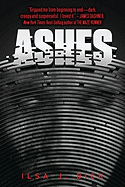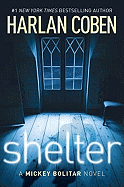 Spencer Quinn has just published The Dog Who Knew Too Much (see our review below), the fourth installment in his Chet and Bernie mystery series (Dog On It, Thereby Hangs a Tail and To Fetch a Thief). The books combine suspense with a lot of humor, most of it supplied by Chet, a 100+ lb. mixed breed of loyalty, goofiness and eagerness, as he enthusiastically helps private eye Bernie and narrates his thoughts. The "dialogue" is snappy ("For God's sake, Chet--you do that every time." I do? News to me. But I got most of my news from Bernie, so no problem.), and the one-liners fly. The books are absolutely irresistible (as is Chet).
Spencer Quinn has just published The Dog Who Knew Too Much (see our review below), the fourth installment in his Chet and Bernie mystery series (Dog On It, Thereby Hangs a Tail and To Fetch a Thief). The books combine suspense with a lot of humor, most of it supplied by Chet, a 100+ lb. mixed breed of loyalty, goofiness and eagerness, as he enthusiastically helps private eye Bernie and narrates his thoughts. The "dialogue" is snappy ("For God's sake, Chet--you do that every time." I do? News to me. But I got most of my news from Bernie, so no problem.), and the one-liners fly. The books are absolutely irresistible (as is Chet).
Spencer Quinn spoke with us from Cape Cod, where he lives with his family, including Audrey, age six, a Golden Retriever-Bernese mix with a very nice disposition, smart, but intractable (with the size to back it up).
Shelf: The rambling voice of Chet seems very dog-like in that he has good recall for certain events, but not for others. ("I remembered that day, a bad day--flunking out of K-9 school just before the leaping test, my very best thing! Was a cat involved? Blood? Those parts were pretty hazy. But a real good day, too, on account of that was when I got together with Bernie.") And Chet adores Bernie in all of his aspects. In fact, he has unstinting admiration for most things: "We like the fast lane best, me and Bernie." And Bernie, of course, loves Chet.
Quinn: Chet is a classic unreliable narrator. That was the fun of creating the private eye stories because the story depends on following a logical chain of clues. But Chet is incapable of doing that.
Chet is living in the moment, which is one of the reasons people really like him. He enjoys life to the full and is looking forward to the future. It's not that dark things don't happen, but his reset is an optimistic one.
Are we projecting? Or is there a true joy in a dog? There are many dog personality types, but if treated halfway decently, a dog responds with unconditional love. It's true. I have no doubt. It's species-ist to exclude other animals from these feelings. Or you could say that they've been bred to respond this way. It's kind of scary--engineering a cuddly life form that always cuts us a break.
When the idea for the books first came to me, my very first decision was, Chet wasn't going to be a human in a dog suit. He wasn't going to have any human attributes. He wasn't going to be erudite. I knew this would be a challenge, but I also knew dogs have a narrative going on in their heads. I've had dogs all my life. I've made very little formal study. But writers sit around a lot. I always write in my office over the garage. I've done a lot of gazing outside where the dogs roam. It's been osmosis for dog behavior. The other part is how imagination works. I don't examine this too carefully.
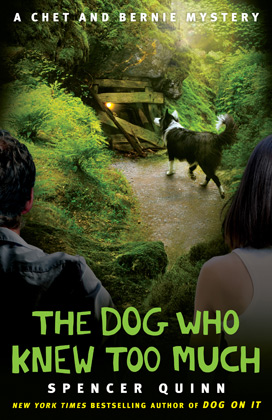 Why do you suppose books with thinking and/or talking dogs are so popular? It would seem to go beyond the fact that a gazillion people own dogs.
Why do you suppose books with thinking and/or talking dogs are so popular? It would seem to go beyond the fact that a gazillion people own dogs.
I don't know this for sure, but I think there was a time when people were much closer in their daily lives to animals. It's natural for us to know animals well. Now we are so deracinated. I think these books are a way through the imagination for readers to touch that kind of rootedness that we've lost. And to believe that a narrative is happening in an animal's mind is a change in our thinking and understanding.
My own outlook on life has certainly changed because of Chet. This is bizarre. The way he relishes things, his enjoyment--some of that has rubbed off on me. Especially because I didn't know he was going to be such a raconteur. That makes it a lot of fun to write. Writing is hard work, but if there's an element of fun, that gets turned loose on the page and gives it a vitality that no amount of pure labor or MFA courses can give you.
I'm really enjoying all the different characters in the series. Often series run out of freshness, but that hasn't happened here. Chet is such a great voice--it's like taking dictation. I'm getting even more enthusiastic about the series.
Now that the fourth book is out by Spencer Quinn, is there anything coming from Peter Abrahams, the other side of Quinn?
Yes, I have a novel for middle readers coming out in January from Philomel: Robbie Forester and the Outlaws of Sherwood Street. It's about a 12-year-old "Robin Hood" girl in present-day Brooklyn, with a bit of a paranormal edge.
I've written quite a bit for kids. I really like it. You get all these great e-mails, unmediated by adults. I can also tell when kids are being assigned one of my books for a book report. --Marilyn Dahl, book review editor, Shelf Awareness
Spencer Quinn: Taking Dictation from a Dog
 At the farmers' market I've insisted my daughter ask vendors to tell us about their journeys. We hear stories of farms, the acreage they're protecting, the people they employ and details about how they make that incredible blackberry ice cream--because it was their grandmother's secret recipe and is from the cows that are descended from their favorite bovines of childhood. My daughter looks up at me with expectant eyes, and I can only hear the wondrous call of "locavesting" and say, "Yes. Ice cream. Before dinner. Yes." --Jenn Risko, publisher, Shelf Awareness
At the farmers' market I've insisted my daughter ask vendors to tell us about their journeys. We hear stories of farms, the acreage they're protecting, the people they employ and details about how they make that incredible blackberry ice cream--because it was their grandmother's secret recipe and is from the cows that are descended from their favorite bovines of childhood. My daughter looks up at me with expectant eyes, and I can only hear the wondrous call of "locavesting" and say, "Yes. Ice cream. Before dinner. Yes." --Jenn Risko, publisher, Shelf Awareness


 Spencer Quinn has just published The Dog Who Knew Too Much (see our review below), the fourth installment in his Chet and Bernie mystery series (Dog On It, Thereby Hangs a Tail and To Fetch a Thief). The books combine suspense with a lot of humor, most of it supplied by
Spencer Quinn has just published The Dog Who Knew Too Much (see our review below), the fourth installment in his Chet and Bernie mystery series (Dog On It, Thereby Hangs a Tail and To Fetch a Thief). The books combine suspense with a lot of humor, most of it supplied by  Why do you suppose books with thinking and/or talking dogs are so popular? It would seem to go beyond the fact that a gazillion people own dogs.
Why do you suppose books with thinking and/or talking dogs are so popular? It would seem to go beyond the fact that a gazillion people own dogs. 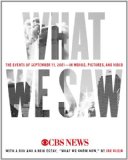 A plethora of media surrounds this milestone, and that includes books. While there have been many stories (fiction and nonfiction) written about what happened on that terrible day and after, this week's Further Reading focuses on the visual.
A plethora of media surrounds this milestone, and that includes books. While there have been many stories (fiction and nonfiction) written about what happened on that terrible day and after, this week's Further Reading focuses on the visual.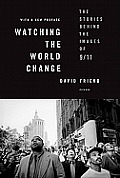 Watching the World Change: The Stories Behind the Images of 9/11 is an amazing blend of prose and photographs, no surprise as it comes from Vanity Fair creative director David Friend. This book's focus on a limited number of images--some already iconic, like the three firefighters raising the flag at Ground Zero; others personal, shot from parks and apartment buildings--gives it gravity and intimacy.
Watching the World Change: The Stories Behind the Images of 9/11 is an amazing blend of prose and photographs, no surprise as it comes from Vanity Fair creative director David Friend. This book's focus on a limited number of images--some already iconic, like the three firefighters raising the flag at Ground Zero; others personal, shot from parks and apartment buildings--gives it gravity and intimacy.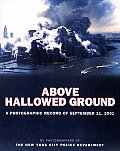 Above Hallowed Ground: A Photographic Record of September 11, 2001 by Christoper Sweet et al. contains photographs taken by members of the New York Police Department. Taken from police helicopters, from the ground, from places no one else was allowed to go during and after the attacks, these are pictures that tell stories, and also teach lessons.
Above Hallowed Ground: A Photographic Record of September 11, 2001 by Christoper Sweet et al. contains photographs taken by members of the New York Police Department. Taken from police helicopters, from the ground, from places no one else was allowed to go during and after the attacks, these are pictures that tell stories, and also teach lessons. Memory Remains: 9/11 Artifacts at Hangar 17 by Francesc Torres takes readers into a kind of museum, one that houses the "non-human remains" from the World Trade Center: twisted ambulances, crushed girders, smashed signage and, poignantly, personal effects including business cards, correspondence and children's art that once hung above proud parents' desks.
Memory Remains: 9/11 Artifacts at Hangar 17 by Francesc Torres takes readers into a kind of museum, one that houses the "non-human remains" from the World Trade Center: twisted ambulances, crushed girders, smashed signage and, poignantly, personal effects including business cards, correspondence and children's art that once hung above proud parents' desks.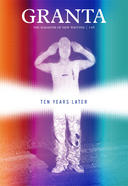 Tonight Book Court is also hosting an event sponsored by Granta magazine, featuring some of the contributors to the magazine's current issue, which has a 9/11 theme. U.S. editor John Freeman said Granta chose to work with indie bookstores, planning a series of events, because they are "like the Quaker meeting halls of yore." For the full Granta event list,
Tonight Book Court is also hosting an event sponsored by Granta magazine, featuring some of the contributors to the magazine's current issue, which has a 9/11 theme. U.S. editor John Freeman said Granta chose to work with indie bookstores, planning a series of events, because they are "like the Quaker meeting halls of yore." For the full Granta event list, 